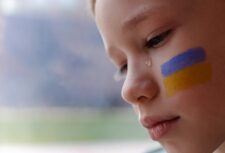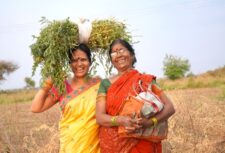Disclaimer: This article is more than 16 years old, and may not include the most up-to-date information or statistics. Please verify information with more recent sources as needed, and if you have any questions contact our Press Office.
1 February 2008



The entry into force of the Council of Europe Convention on Action against Trafficking in Human Beings on 1 February 2008 represents a major step in the protection of rights of the individuals who have been trapped in a modern form of slavery, said Amnesty International, Anti-Slavery International and La Strada International today.
The 14 states which have so far become parties to this Convention have committed themselves to ensuring enhanced respect and protection of the rights of trafficked persons.
Amnesty International, Anti-Slavery International and La Strada International call on the other 33 member states of the Council of Europe, as well as the European Union, to follow the lead taken by Albania, Austria, Bosnia and Herzegovina, Bulgaria, Croatia, Cyprus, Denmark, France, Georgia, Malta, Moldova, Norway, Romania and Slovakia by becoming parties to and implementing this Convention without further delay.
” In and through Europe, women, men and children are trafficked for exploitation in a variety of sectors, such as domestic work, farming, manufacturing, construction, hospitality and forced prostitution. While accurate statistics of this global crime are not available, due in part to its clandestine nature and difficulties inherent in locating and accurately identifying its victims, estimates of its global incidence range in the millions “, said Klara Skrivankova of Anti-Slavery International.
Jill Heine of Amnesty International said that: ” In the course of this ordeal, the very human dignity of persons who are trafficked is violated. In the trafficking process, trafficked persons are typically subjected to compound violations of their human rights. Many are abducted, held against their will in poor conditions, beaten, sexually abused and subjected to other forms of torture. Frequently they suffer violations of the rights to physical and mental integrity; liberty and security of the person; freedom from slavery, slavery-like practices, torture and other inhuman or degrading treatment; family life; freedom of movement; privacy; the highest attainable standard of health; and safe and secure housing. “
Rather than being treated as victims of heinous crimes, when they come to the attention of the authorities, typically trafficked persons are treated as criminals, unlawful aliens or, in cases in which the authorities seek to pursue their trafficker, useful tools of the criminal justice system. The psychological, medical and social consequences of the ordeal to which they have been subjected and the underlying root causes (including the “push” and “pull” factors) are rarely addressed. Assistance, when offered to trafficked people to recover from their ordeal, is frequently made conditional on their agreement to cooperate in prosecutions against their traffickers. Such cooperation often places trafficked persons and members of their families in further danger at the hands of the traffickers.
” Access to justice including redress, compensation, restitution and rehabilitation, for the abuses that victims have suffered is rare across Europe. Non-nationals without rights to residence in the country in which they are found are frequently deported without consideration of the risks that they may face on return, be they re-trafficking or other violence at the hands of their traffickers or others “, said Marieke van Doorninck of La Strada International .
Those states that become parties to the Council of Europe Convention against Trafficking, have committed themselves to taking a different approach. They have agreed to take individual and collective action to criminalise trafficking as well as a range of other minimum steps necessary to respect and protect the rights of trafficked persons. These steps include, among others, ensuring that:
a mechanism is in place for the accurate identification of trafficked persons;
persons reasonably believed to have been trafficked are granted time to recover and are offered assistance and protection-regardless of whether they agree to participate in any proceedings the authorities may decide to pursue against those responsible for their ordeal;
and that trafficked persons have access to redress, including compensation.
Within the next year, the states that are a party to the Council of Europe Convention against Trafficking will elect 10-15 independent experts who will serve as the body which is tasked with assisting states in their implementation of this treaty. Amnesty International, Anti-Slavery International and La Strada International therefore also call on states and the Committee of Ministers of the Council of Europe to ensure that the processes of nomination and election of the members this body — known as GRETA — are open, transparent and aimed at ensuring that those appointed are independent, possess the relevant expertise and that this body is afforded adequate resources to carry out its function.





